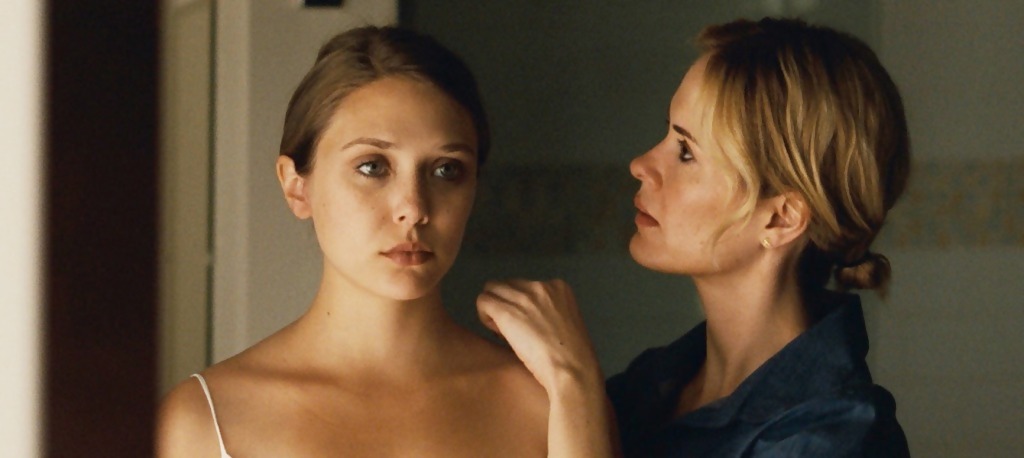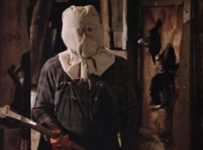A mystery, wrapped in a thriller, entangled within an indie facade, Martha Marcy May Marlene keeps the audience at arm’s length in its fractured musing on the meaning of identity.
[stextbox id=”grey” caption=”Martha Marcy May Marlene (2011)” float=”true” align=”right” width=”200″]
Director: Sean Durkin
Writer(s): Sean Durkin
Runtime: 101 minutes
Starring: Elizabeth Olsen, Sarah Paulson, John Hawkes, Hugh Dancy
Distributor: Fox
Country: US
Rating: Wait for DVD/Blu-ray (?)
[/stextbox]
About the only thing more disarming than the advanced buzz around Martha Marcy May Marlene was the the knowledge that there was another Olsen sister, and she could act. Sean Durkin‘s daring debut took out the Directing Award at the Sundance Film Festival, where it also saw its premiere, before going on to impress various critics societies, circles and associations around the world. In all of this global acclaim, it is easy to miss some of the small details, and yet this is where the rewarding elements of Durkin’s film reside.
The dual narrative concerns Martha (relative newcomer Elizabeth Olsen), recent escapee from an alternative-living cult run by the manipulative Patrick (John Hawkes) and her tentative steps back into ‘reality’ with her sister Lucy (Sarah Paulson) and obnoxious spouse Ted (Hugh Dancy). Apparently escaping from the cult, and moving in with her sister, Martha is no longer able to relate to the excesses of the ‘normal’ world. The parallel story-lines result in a fractured world for Martha, known in her other life as Marcy May and Marlene.
Durkin’s slow-moving script aims for contemplative, punctuated by moments of horror in which her past life penetrates her current, and Martha’s unravelling and inability to cope with life outside the cult compound demonstrate some undoubtedly decent acting chops on Olsen. Yet Martha Marcy May Marlene is also a cold film, keeping the audience at arm’s length with a pair of irredeemably unlikeable characters in Lucy and Ted, and a script that refuses to commit to anything all the way up to its ambiguous ending. Yet upon repeat viewings, the psychological thriller aspects of the film, brought about by Martha’s increasing paranoia, become all the more palpable and give rise to what could be genuine threat, or all in Martha’s head. Here it gets closest to being a film in the vein of Michael Haneke’s Funny Games, but Durkin captures the form without the corresponding function.
While Olsen’s performance is the standout, the always reliable Hawkes is equal parts Jim Jones and Charles Manson, right down to the guitar solo and borrowed song he serenades Martha with. These are the most fascinating parts of the film, as we watch Martha slowly fall under the spell of someone she clearly knows is not quite safe. Yet Durkin’s focus is not on this chapter in Martha’s life, but rather the aftermath of belonging to that environment. Juxtaposing the “loving” environment of the compound family with her disinterested blood ties may be making a point, although it is not entirely sure what this is. Despite a noticeable performance by Olsen, Martha Marcy May Marlene is an often directionless and sporadically plotted film with some wholly dysfunctional characters.
[stextbox id=”custom”]A mystery this may be, but one that is often so couched in its own cleverness that any moments of brilliance are lost in the ponderous ether.[/stextbox]
Martha Marcy May Marlene is released in Australia on 2 February 2012 from Fox.






